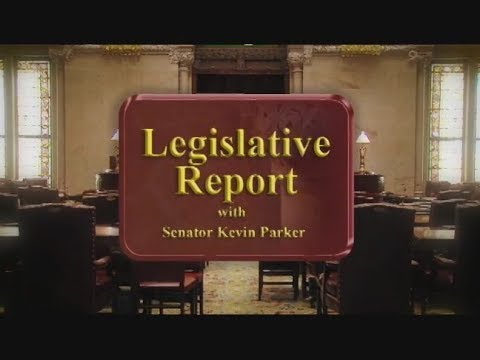
Lawmakers, Advocates, and Survivors of Solitary Confinement Back Legislation Limiting Use of Isolation in New York's Prisons and Jails
Kevin S. Parker
April 22, 2015
-
ISSUE:
- Correctional
For immediate release
April 22, 2015
Lawmakers, Advocates, and Survivors of Solitary Confinement Back Legislation Limiting Use of Isolation in New York's Prisons and Jails
New Yorkers Converge in Albany from Across the State to Advocate for Change
Three Pending Bills Would Make New York State a National Leader
in Solitary Confinement Reform
Albany, April 22 – At a morning press conference and educational event, leading lawmakers joined with experts and advocates, including individuals with direct experience of solitary confinement, to speak out against the widespread use of extreme isolation in New York’s prisons and jails.
Held on a day when more than a hundred people converged in the Capitol from across the state to advocate for legislation curtailing the use of solitary and other forms of prison isolation, the event included remarks by the original sponsors of three groundbreaking bills.
Assembly Member Jeffrion L. Aubry and Senator Bill Perkins are the lead sponsors of the Humane Alternatives to Long-Term (HALT) Solitary Confinement Act, A. 4401/S. 2659, which would exclude vulnerable populations while also limiting isolation for others to 15 days and creating secure rehabilitation units as an alternative to long-term solitary.
“Inconceivably, we have a human rights crisis here in New York State, as over 5,000 individuals—many of the most vulnerable and defenseless among us—are subject to state-sanctioned torture, in the form of solitary confinement,” said Senator Perkins. “To end these impermissible abuses, I was proud to introduce the HALT Solitary Confinement Act, which will wisely substitute a rehabilitative and therapeutic model in place of isolation so that individuals can receive the programming, support and interventions needed to help them rehabilitate and grow.”
According to Assembly Member Aubry, “New York State was a leader for the country in passing the 2008 SHU Exclusion Law, which keeps people with the most severe mental health needs out of solitary confinement. Now we must show the way forward again, ensuring that we provide safe, humane and effective alternatives to solitary for all people.”
Assembly Member Daniel J. O’Donnell, who chairs the Correction Committee, is the sponsor of A. 1346A, which would require that all solitary confinement sanctions be imposed as a measure of last resort, and for the minimum period necessary, and would ban solitary confinement for individuals under 21 years of age, and for those with mental illness and developmental disabilities. A related bill sponsored by Assembly Member Nily Rozic and passed by the Assembly, A. 1347, would ban solitary confinement for pregnant women and nursing mothers in prison.
“Following the United Nation’s Committee Against Torture’s report, it is all the more clear that we need to change the way we use solitary confinement in New York State,” Assembly Member O’Donnell said. “Our prisons should be places of rehabilitation, not counterproductive punishment. The bills being advocated for today will contribute to that goal by making solitary confinement a true measure of last resort and banning its use for particularly vulnerable inmates who are under 21, pregnant, or mentally ill.”
“Knowing that excessive periods of isolation can lead to emotional, physical, and psychological harm, we must continue to build on recent efforts to ban the use of solitary confinement as punishment,” said Assemblywoman Nily Rozic. “Through legislative solutions we can reform the state's disciplinary system and prevent the overuse of a practice that leaves no room for rehabilitation.”
...
Quotes from Co-Sponsors of the HALT Solitary Confinement Act
Senator Kevin Parker said: “It is astounding that a system which we define as correctional engages in solitary confinement, a punitive and highly dehumanizing action. Sadly, studies have shown that it is the most vulnerable, the mentally ill -- not the most violent -- in the prison population who are subjected to sensory deprivation, and denied human contact. For the 5,000 individuals under solitary confinement in New York, the potential irreversible psychological effects translate into a range of problems -- visual and auditory hallucinations, hypersensitivity to sound and touch, insomnia, paranoia, uncontrollable rage or fear, a distortion of time and perception, and higher suicide rates -- all of which culminate in a greater cost to our society on many levels. The impact cannot be called educational, rehabilitative, nor correctional. I am proud to sponsor legislation that demands changes in our prison system.”
State Senator Brad Hoylman said: “Thousands of people across New York are forced to languish in solitary confinement each day despite the fact that research shows this barbaric practice leads to psychological damage and increased recidivism. I'm proud to join Senator Perkins, Assembly Member Aubry and the Campaign for Alternatives to Isolated Confinement in cosponsoring legislation to restrict the use of solitary confinement and promote humane alternatives that seek to rehabilitate inmates rather than inflict senseless suffering.”
State Senator James Sanders Jr. said: “We have a responsibility to be tough on crime, but we also have a responsibility to help rehabilitate the incarcerated so they can become productive members of society. Confining prisoners to a cell for 22 to 24 hours a day without meaningful human contact or therapy is cruel and unusual punishment. That is why I am proud to join my colleagues in supporting the HALT Solitary Confinement Act, which will implement restrictions on who can be confined and for how long and will create more humane and effective alternatives to such confinement. It doesn't benefit anyone to have inmates leaving prison worse off than when they went in. If we can alter the behavior of the incarcerated through beneficial programming rather than sealing them in a room all day, we have a better chance that they will not re-offend.”
“Long-term solitary confinement is, simply put, inhumane. This ineffective method of physical and psychological punishment is not compatible with the ideals of liberty, nor the 21st Century," said State Senator Jose Peralta, a co-sponsor of the bill and member of the Committee on Crime Victims, Crime and Correction. "Isolation of incarcerated persons does more harm than good, and we must find alternative and effective measures to deal with the most violent offenders.”
State Senator Ruth Hassell-Thompson said: “In 2008, after over a decade of litigation, New York State enacted the Special Housing Units (SHU) Exclusion Law, which would move inmates diagnosed with serious mental illnesses from solitary confinement into residential mental health units (RMHU) under the auspices of the Department of Corrections (DOCS) and Office of Mental Health (OMH). While this was a long-awaited and necessary first step towards reforming solitary confinement much more needs to be done to end this cruel and inhumane practice. New York State still houses nearly 4,000 people, disproportionately of color, in special housing units. Today we will hear from a growing number of experts who will reiterate how damaging segregated confinement is and who will provide us with alternative methods to this harsh form of punishment.”
State Senator Liz Krueger said: “It’s time for New York State to end the cruel and excessive use of solitary confinement, a punishment so extreme that the United Nations has concluded it can be tantamount to torture. All people in our prison system, especially the high number suffering from serious mental illness, should be treated humanely and offered effective rehabilitative support, not punitive measures that have been shown to only increase violence and recidivism. The HALT Solitary Confinement Act offers practical, smart and urgently needed reforms, and I urge my legislative colleagues to support it.”
“Long term solitary prison confinement is outdated isolation with no demonstrated therapeutic advantages or benefits to prisoners. I support reducing solitary confinement in New York and am proud to co-sponsor A4401/S2659. Confinement does not necessarily reduce violent behavior and often contributes to mental illness. New York should lead to seek alternative therapies for prisoners,” said Assistant Assembly Speaker Felix W. Ortiz.
“Solitary confinement has catastrophic long-term effects on physical and mental health,” said Assembly Health Committee Chair Richard N. Gottfried. “No responsible medical professional could stand for this, and New York State shouldn’t either.”
Assembly Member Phil Steck said: “This bill is necessary to protect vulnerable populations such as adolescents, the elderly, pregnant women, people with developmental disabilities and those suffering from severe mental illness. Currently there is no limit to how long someone can be held in solitary confinement. Studies have shown that prolonged solitary confinement for 15 days or longer can cause permanent psychological damage, leading to increased rates of recidivism, and increased prison costs. As a modern society, we should end inhumane and ineffective approaches to incarceration.”
Assembly Member Jo Anne Simon said: “I am proud to be a sponsor S2659/A4401 which would force New York State prisons to act humanely in connection with solitary confinement, and would prohibit its use with inmates who have physical or mental disabilities. As a former teacher of deaf and deaf-blind children, I understand better than most just how destructive segregated housing units are for such individuals. Solitary confinement is appalling for any inmate; it is cruel and unusual for those who already suffer isolation and sensory deprivation as a consequence of their deafness or blindness or other disabilities.”
Assembly Member Barbara M. Clark said: “I’d like to thank Assemblyman Aubry for championing this legislation. As a sponsor of this legislation, I understand the detrimental and psychological effects of solitary confinement on juveniles. Many studies found that adolescents in isolated confinement were more likely to harm themselves. Moreover, solitary confinement did very little to correct negative behavior and instead it tends to produce adverse effects. Considering the seriousness of this issue, we have to reduce these long-lasting punitive practices and provide less harmful alternatives. We should be in the business of providing brighter futures for our children and youth. I urge my legislative colleagues to join Assemblyman Aubry in this worthy effort.”
Assembly Member Ellen Jaffee said: “A reported 85-90% of incarcerated women have a history of domestic and sexual abuse. Solitary confinement makes these women even more vulnerable to physical and emotional trauma. New York must end this egregious practice in our prisons and focus on therapeutic options for all prisoners.”
“As many of my colleagues and I look to reform the criminal justice system in New York one area we must continue to look at is how we treat inmates across the state,” said Assembly Member Luis Sepúlveda. “One issue that New York has been at the forefront of is reforming the use of solitary confinement. Assemblyman Aubry’s bill is a commonsense approach to reform the current use of solitary confinement to something more humane. I look forward to working on this bill with my colleagues in the Corrections Committee.”
Assembly Member Frank Skartados said: “Solitary confinement in certain circumstances is warranted but it has all too often been misused as a means of punishment. The United Nations Committee Against Torture recognized this in the United States and made recommendations that are worth our adoption.”
EVENT DETAILS:
Date/Time/ Location: Wednesday, April 22, 10:30 am - 11:30 am
Hearing Room C, Legislative Office Building
198 State Street, Albany, NY
Speakers:
Juan E. Méndez, UN Special Rapporteur on Torture (via video)
Assembly Member Jeffrion L. Aubry, Assembly sponsor, HALT Solitary Confinement Act, A. 4401/S. 2659
Senator Bill Perkins, Senate sponsor, HALT Solitary Confinement Act, A. 4401/S. 2659
Assembly Member Daniel J. O’Donnell, Chair, Corrections Committee, and sponsor, A. 1346A
Assembly Member Nily Rozic, sponsor, A. 1347
Tyrrell Muhammad, survivor of solitary confinement in New York State, Campaign for Alternatives to Isolated Confinement (CAIC)
Alicia Barraza, mother of Benjamin Van Zandt, who took his own life while in solitary confinement
Scott Paltrowitz, Correctional Association of New York, CAIC
PRESS KIT INCLUDES:
Press Release
Infographic on Solitary Confinement in New York State Prisons
Fact Sheet on Solitary Confinement in New York State
Summary of the Humane Alternatives to Long-Term (HALT) Solitary Confinement Act
Full Text of HALT Act, A. 4401/S. 2659
Full Text of A. 1346A
Full Text of A. 1347
New York Voices from Solitary Confinement
“Cycle of Despair” by Anthony Davis
Statement by Juan E. Méndez, UN Special Rapporteur on Torture
FOR MORE INFORMATION, VISIT WWW.NYCAIC.ORG
Share this Article or Press Release
Newsroom
Go to NewsroomRheyser Henry
May 15, 2018



